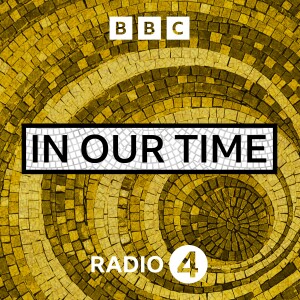
Melvyn Bragg and his guests discuss the artistic movement known as Sturm und Drang.In the 1770s a small group of German writers started to produce plays, poetry and novels which were radically different from what had gone before. These writers were all young men, and they rejected the values of the Enlightenment, which they felt had robbed art of its spontaneity and feeling. Their work was passionate, ignored existing conventions and privileged the individual's free will above the constraints of society.The most prominent member of the movement was Johann von Goethe, whose novel The Sorrows of Young Werther became its most notable success, translated into more then thirty languages. Despite this and other successes including Schiller's play The Robbers, the Sturm und Drang disappeared almost as quickly as it had emerged; by the mid-1780s it was already a thing of the past.With:Tim BlanningEmeritus Professor of Modern European History at Cambridge UniversitySusanne KordProfessor of German at University College, LondonMaike Oergel Associate Professor of German at the University of NottinghamProducer: Thomas Morris.
More Episodes
 2017-06-01
2017-06-01
 290
290
 2017-05-25
2017-05-25
 414
414
 2017-05-18
2017-05-18
 255
255
 2017-05-11
2017-05-11
 148
148
 2017-05-04
2017-05-04
 354
354
 2017-04-27
2017-04-27
 423
423
 2017-04-20
2017-04-20
 158
158
 2017-04-13
2017-04-13
 225
225
 2017-04-06
2017-04-06
 194
194
 2017-03-30
2017-03-30
 176
176
 2017-03-23
2017-03-23
 127
127
 2017-03-16
2017-03-16
 212
212
 2017-03-09
2017-03-09
 164
164
 2017-03-02
2017-03-02
 165
165
 2017-02-23
2017-02-23
 125
125
 2017-02-16
2017-02-16
 161
161
 2017-02-09
2017-02-09
 71
71
 2017-02-02
2017-02-02
 101
101
 2017-01-26
2017-01-26
 81
81
 2017-01-19
2017-01-19
 192
192
Create your
podcast in
minutes
- Full-featured podcast site
- Unlimited storage and bandwidth
- Comprehensive podcast stats
- Distribute to Apple Podcasts, Spotify, and more
- Make money with your podcast
It is Free
- Privacy Policy
- Cookie Policy
- Terms of Use
- Consent Preferences
- Copyright © 2015-2024 Podbean.com



